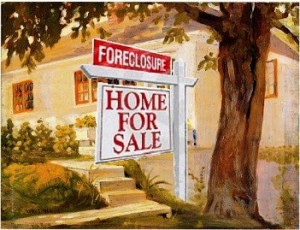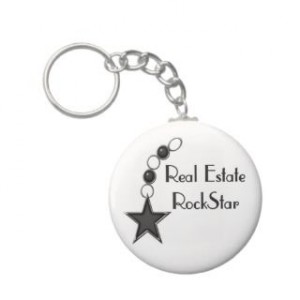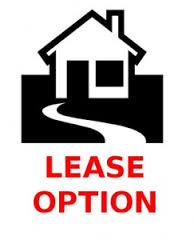 The good news is, yes, you read that headline correctly: there are drop-dead gorgeous oceanfront island vacation homes on sale for you right now—this summer! The bad news, however, (depending on your vacation and travel plans) is that these homes for sale aren’t as convenient (geographically speaking) as some others.
The good news is, yes, you read that headline correctly: there are drop-dead gorgeous oceanfront island vacation homes on sale for you right now—this summer! The bad news, however, (depending on your vacation and travel plans) is that these homes for sale aren’t as convenient (geographically speaking) as some others.
They are in Greece. There’s always a catch, isn’t there?
CNNmoney’s website reported last week that the recent escalation in Greece’s financial trouble has produced a notable increase of interest from foreign investors. Reports indicate that prices are discounted anywhere from 30% in the most popular islands to as much as 50% in less relaxing places. Like Athens.
Alexandros Moulas, who is an Athens-based associate at the global property firm Savills, says that buyers are mostly from Europe, but also the Middle East and Asia. So why not add Highlands buyers to the pack? We like vacation homes, too!
There are reasons why Highlands locals might consider a Greek investment property, aside from the travel benefits. A Greek island home, for example, can be a nice earner. Rental incomes are attractive—but it’s wise to keep in mind that islands like Mykonos are incredibly seasonal, grinding to a complete halt each winter.
The truth is, I can’t actually sell a single one of these stunning, bargain-priced Greek island homes to you. As a licensed real estate agent here in Highlands, I am an expert in Highlands homes for sale, and – while a trip to Mykonos sounds fantastic, the homes for sale in Highlands need me here this summer.
So while there might not be any oceanfront homes for sale in in these parts at a 30% – 50% discount, there are a great many welcoming Highlands homes for sale this summer—and interest rates are still, for the moment at least, temptingly low. Call me anytime this summer to discuss your search!


 If you are one of those Highlands homeowners who has been gladdened to see property values continuing to rebound, you have also been pleased at the steady decline in the wave of foreclosures that were part of the global financial crisis. When the subprime mortgage crisis triggered widespread financial dislocation, many homeowners felt the repercussions. Every Highlands foreclosure that resulted weighed on neighborhood property values, which reflect the dollar amounts paid when nearby homes change hands.
If you are one of those Highlands homeowners who has been gladdened to see property values continuing to rebound, you have also been pleased at the steady decline in the wave of foreclosures that were part of the global financial crisis. When the subprime mortgage crisis triggered widespread financial dislocation, many homeowners felt the repercussions. Every Highlands foreclosure that resulted weighed on neighborhood property values, which reflect the dollar amounts paid when nearby homes change hands. Highlands real estate news is fairly predictable—at least compared with some of the stories that filter in from the rest of the world. Here in Highlands, for instance, wherever a new home is being built, you’re likely to see familiar evidence like stacks of lumber and drywall, cartons of nail gun ammo, sacks of cement, and workmen hustling around as they put everything together.
Highlands real estate news is fairly predictable—at least compared with some of the stories that filter in from the rest of the world. Here in Highlands, for instance, wherever a new home is being built, you’re likely to see familiar evidence like stacks of lumber and drywall, cartons of nail gun ammo, sacks of cement, and workmen hustling around as they put everything together. Highlands real estate trends don’t always trace patterns that are precisely identical to those in the rest of the state or nation, but sooner or later the local market almost always responds similarly. That’s because there is a certain amount of momentum—positive or negative—that is automatically spawned by the good or bad real estate market news reported in the mass media.
Highlands real estate trends don’t always trace patterns that are precisely identical to those in the rest of the state or nation, but sooner or later the local market almost always responds similarly. That’s because there is a certain amount of momentum—positive or negative—that is automatically spawned by the good or bad real estate market news reported in the mass media. Highlands homeowners could benefit if the influx of international home buyers continues to expand. According to a study from the National Association Realtors®, the trend in that direction has been accelerating. In the most recent release covering the twelve-month period ending last March, foreign nationals are reported to have spent more than $92 billion in the United States for the year.
Highlands homeowners could benefit if the influx of international home buyers continues to expand. According to a study from the National Association Realtors®, the trend in that direction has been accelerating. In the most recent release covering the twelve-month period ending last March, foreign nationals are reported to have spent more than $92 billion in the United States for the year. One of the most effective ways to maximize your chances of achieving the best residential real estate deal possible lies in your ability to partner effectively with your choice of Sapphire real estate agent. Your agent is your local guide through the complexities of Sapphire’s market—your assistant, tutor, and trusted right arm in the enterprise of buying and selling a residence. It’s your Sapphire agent’s job to make the team an effective one—but for all parts to truly work as a unit, some basic elements should be in place…and clearly understood by everyone:
One of the most effective ways to maximize your chances of achieving the best residential real estate deal possible lies in your ability to partner effectively with your choice of Sapphire real estate agent. Your agent is your local guide through the complexities of Sapphire’s market—your assistant, tutor, and trusted right arm in the enterprise of buying and selling a residence. It’s your Sapphire agent’s job to make the team an effective one—but for all parts to truly work as a unit, some basic elements should be in place…and clearly understood by everyone: When your primary residence is one of our Highlands rentals, from time to time you may find yourself pausing, pen hovering over checkbook, thinking, “What if this check were going to buy this place, instead…?”
When your primary residence is one of our Highlands rentals, from time to time you may find yourself pausing, pen hovering over checkbook, thinking, “What if this check were going to buy this place, instead…?” ABC’s Nightline recently aired an interesting segment about house flipping, which included a magic number that’s probably never been seen before. Sapphire house flippers would have been glued to their TVs if they’d stayed up late enough to catch Nightline, because if authentically magical, it’s a good number to know.
ABC’s Nightline recently aired an interesting segment about house flipping, which included a magic number that’s probably never been seen before. Sapphire house flippers would have been glued to their TVs if they’d stayed up late enough to catch Nightline, because if authentically magical, it’s a good number to know. Suppose your Realtor® helped you land a prime Lake Toxaway rental investment property—and you’ve been more than content with the result. Your longtime tenant proved to be conscientious and dependable, with resulting passive income that has been quietly building your bank account with very little oversight from you. In short, your Lake Toxaway rental investment has made you a very happy landlord.
Suppose your Realtor® helped you land a prime Lake Toxaway rental investment property—and you’ve been more than content with the result. Your longtime tenant proved to be conscientious and dependable, with resulting passive income that has been quietly building your bank account with very little oversight from you. In short, your Lake Toxaway rental investment has made you a very happy landlord. You’re at home in Highlands, watching TV and trying to unwind, when all of a sudden here comes another baby boomer celebrity, looking into the camera, giving you his most sincere, trustworthy look, then assuring you that a “Reverse Mortgage” really isn’t too good to be true (even though it sounds like it is).
You’re at home in Highlands, watching TV and trying to unwind, when all of a sudden here comes another baby boomer celebrity, looking into the camera, giving you his most sincere, trustworthy look, then assuring you that a “Reverse Mortgage” really isn’t too good to be true (even though it sounds like it is).
